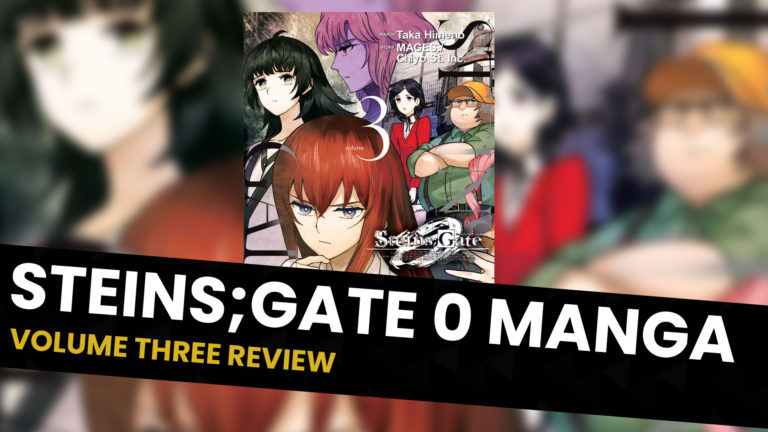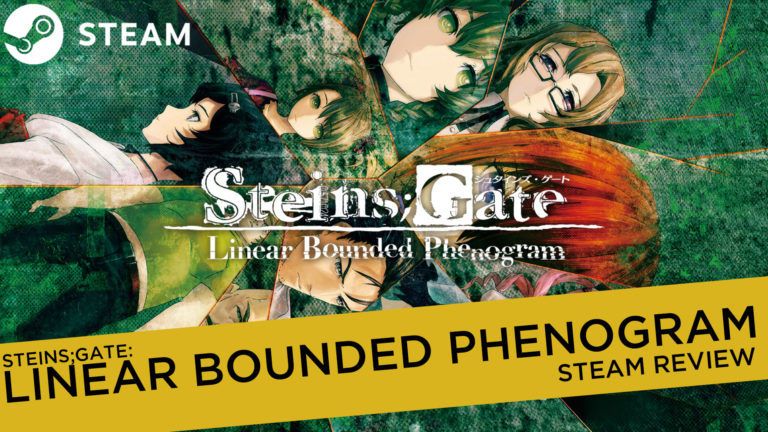In September 1999, Kindle Imagine Develop was still a fledgling developer in the visual novel sphere, and it was preparing to release one of its most ambitious games to date: Memories Off.
It may seem difficult to envision now, on the cusp of 2025, but even back in the 2000s, visual novel developers were highly ambitious about their craft, their passion for strong narrative experiences rivaling even modern sentiments. Memories Off proved KID was no exception to this; what it lacked in budget, KID’s new masterpiece made up for with pure soul. Memories Off was a strikingly sentimental tale of accepting loss, coping with grief, and growing alongside one’s friends—laughing, crying, falling in love, and of course, making irreplaceable memories along the way.
KID had a hit on its hands. The success of Memories Off in 1999 propelled them into great prosperity—industry renown and funds enough to green-light multiple sequels—but it also led them into some poor decisions. When the company declared bankruptcy in early 2007, its successor, MAGES., was what rose from the ashes. MAGES.’ challenge in the new age was to continue the Memories Off series, appealing to new audiences—particularly those enamored with their runaway-hit sister series, Science Adventure—while keeping the original spirit of Memories Off alive.
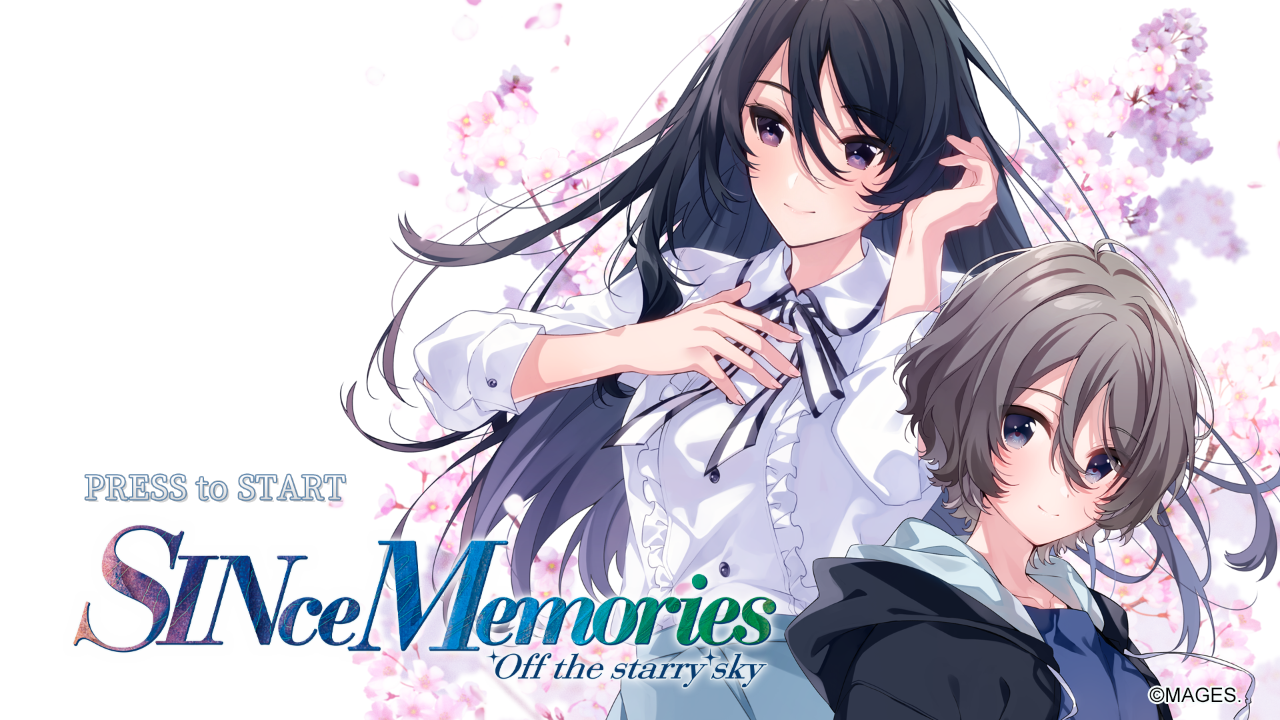
Here, we arrive at present day: twenty-five long years after its inception, MAGES. and English publisher PQube have come together to bring the Memories Off series to English audiences for the first time ever with its latest entry, SINce Memories: Off the Starry Sky. Termed a “new direction for the series,” SINce Memories is said to hold the same charms that made its predecessors special while remaining accessible to new fans without prior experience.
Does SINce Memories live up to the long, storied reputation of the Memories Off series? Today, I’m happy to be able to discuss exactly that. Let’s get right into it.
The SINce Story
Its bright, stunning visuals aside, SINce Memories is an emotionally complicated tale. You follow Junya Mizumoto, a young man who bore witness to the tragic death of his brother in a car accident one year before the story begins.
Tragedy gouges the soul, but life moves ever forward. Junya now works at his family’s general store, Suigendo, where he accepts odd jobs throughout his home city of Sumisora as a handyman. In this way, Junya feels he can bring smiles to the faces of his neighbors, and maybe—just maybe—atone for the loss of his brother. In his eyes, his big brother Takaya was a local superhero, the sort who could do anything for anyone with a smile on his face. The loss of Takaya left holes in the hearts of his friends, family, and the whole of Sumisora. Guilty as he feels about this, Junya often asks himself, Why couldn’t I have been the one to die instead?
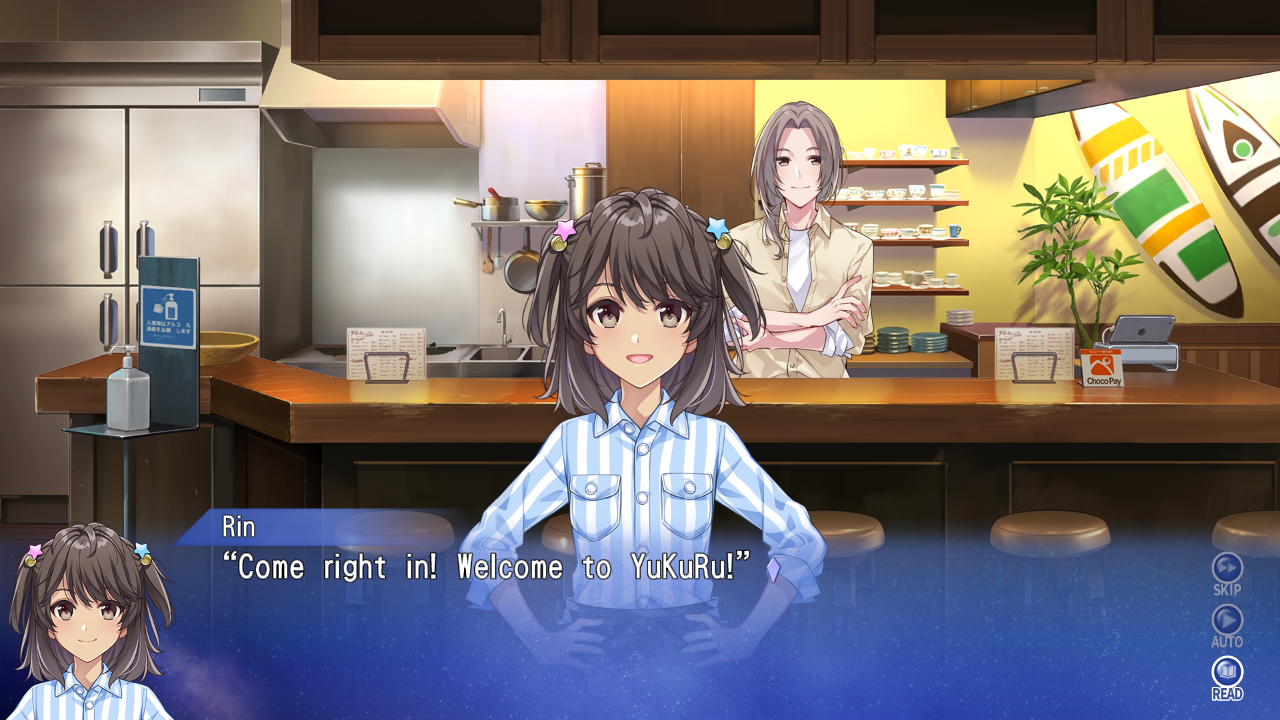

In tragedy, friends and family are where one finds the strength to keep moving forward. Junya’s life is kept bright and exciting by his childhood friends: Chihaya Hojo, the daughter of a prestigious family, and her attendant Hinata, who hides a passionate nerdy side. A gunpoint encounter (or so Junya first thinks) brings the eccentric Chinese transfer student Chunyu into the mix—a girl who’s sharp as a tack and fun as fun can be to follow on adventures. There’s also Yuriko, a girl who seems nice enough but also looks to be hiding a massive secret. And last but not least, there’s Azusa: a small, sharp-mouthed girl who barges into Junya’s world, throwing his life into disarray when she claims he’s to blame for his brother’s horrific death.
SINce Memories’s characters are strong because they’re grounded and true to life. Each heroine transcends simple labels like “tsundere” and “ojou-sama,” their individual routes shedding light on deeper struggles that become the centerpieces to their stories. From the girl who wants to pursue her passion but would hate to knock anyone down to do it, to the girl who feels great tides of emotion but struggles to be honest about them, to the girl who was raised to be a yes-woman and can’t make her own decisions—as a jack-of-all-trades handyman, you might say it was Junya’s destiny to help these heroines break out of their shells, perhaps chipping away at some of his own insecurities in the process.
Junya himself far transcends the silent protagonist tropes. He may be unvoiced for most of the game, and his personality may arguably be a little plain, but he is felt and seen—Junya is evidently his own person facing his own inner turmoils, not a simple stand-in for the player. He isn’t quite ready to dethrone the king of banter, Tomoya Mikami of Memories Off 1st, but for SINce Memories’s purposes, he definitely feels right at home.

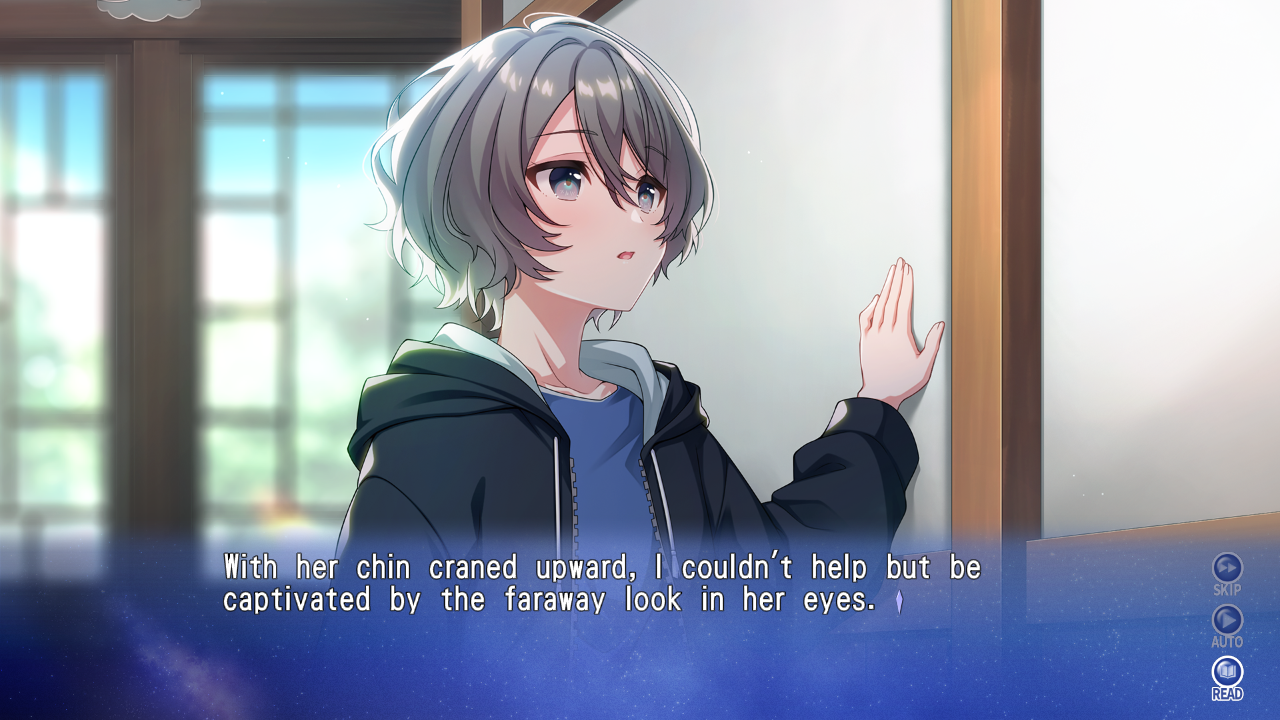
And let’s be clear: SINce Memories isn’t just a simple romance affair. It’s heavy on the mystery too, and its first question is apparent from the start: what were the circumstances behind Takaya’s death? Junya, suffering from memory loss of the incident, knows little more than us—but it soon becomes clear what happened that day was less a misfortunate accident than it is the tip of the iceberg of conspiracy: a large-scale, multifaceted riddle Junya and friends must solve to bring the answers to light and reach the best possible future.
Fans of MAGES.’ Science Adventure series will feel that SINce Memories is akin to Robotics;Notes Elite in this regard. SINce Memories balances strong character development with a mystery plot that, although not meticulously deep, is a ride to enjoy regardless.
Not all parts of SINce Memories’s story are equal, unfortunately. I was particularly fond of Yuriko’s and Chihaya’s routes—the former being an excellent take on insecurity, the latter having the most plot payoff. The other routes are fun, no doubt, but it becomes somewhat clear to the reader that they were rushed to completion or otherwise weakly focused, resulting in a feeling of incompleteness that could have been better addressed.
Due to time constraints, I was unfortunately unable to complete Azusa’s route in time for this review—it seems to be one of the game’s two “true” routes alongside Chihaya’s, so I’m definitely interested in seeing what it’ll add to cap off SINce Memories’s narrative.
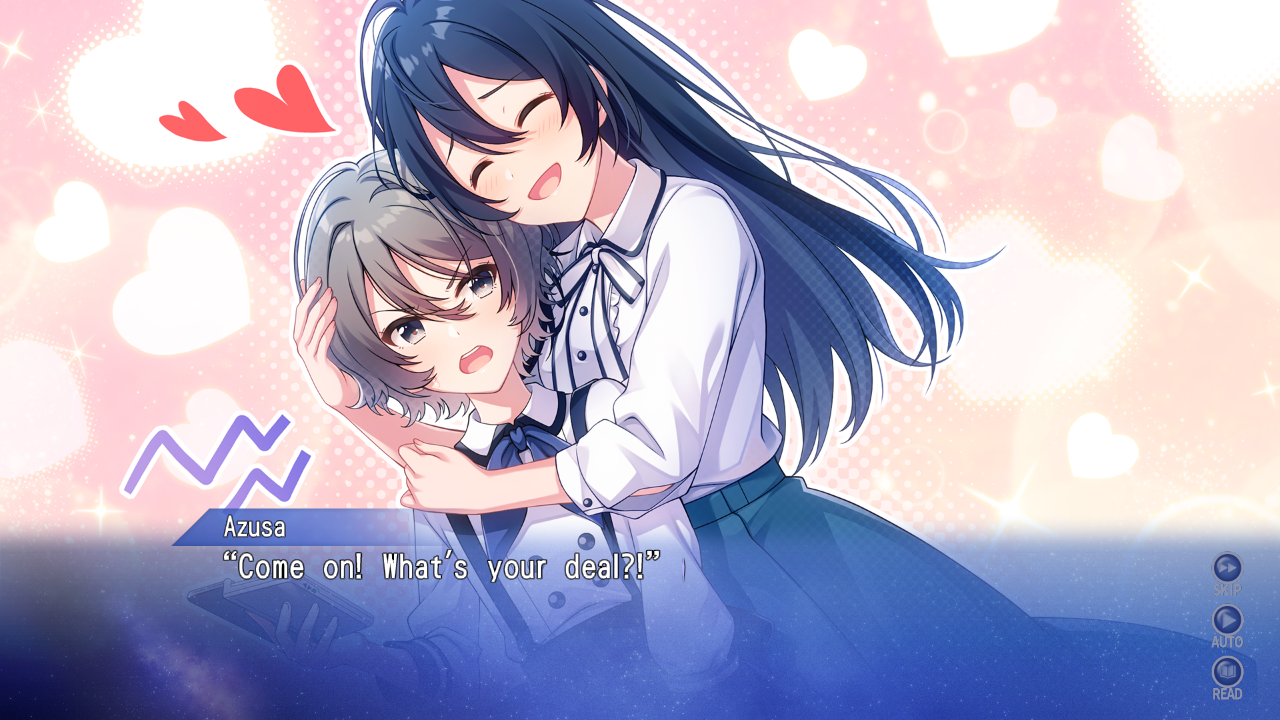
All in all, SINce Memories’s story is an exciting adventure that feels true to the Memories Off formula. It may not have the strongest or most exciting plot of the genre, but it’s very representative of the charms and vibe of the overall series, making it a must read for those looking for a unique character-focused story.
As a side note, you do not need to play previous Memories Off games to enjoy this one. The interseries connections are undeniably there—like Shin Inaho, a familiar friend who makes an appearance in every Memories Off game to help the protagonists out. If you do have prior context, it’s fun to learn how past characters are doing from Shin, or to see how Sumisora has changed since 1999. But SINce Memories takes care to be highly accessible to new fans and old fans alike; you’ll never feel lost as a newcomer, and it’s a good thing, too, because none of the other Memories Off games are translated into English at the moment.
Look and Feel
SINce Memories’s presentation is a real treat. Talented artists U35 and Yasuhiro Ikeda blend beautiful colors with fantastic drawings to deliver a visual experience that never fails to please the eye. The game’s CGs deserve a special mention: if the standard look of the game ever starts to feel stale, the event CGs come to the rescue, painting a vivid and shockingly pretty picture of the scene.

The music, meanwhile, is handled by Takeshi Abo, and it generally carries a comfortable vibe befitting the game’s relaxed atmosphere. If you’ve enjoyed Abo’s past work on Science Adventure or other MAGES. games, the soundtrack will likely meet your expectations, and there won’t be too many surprises, for better or for worse. I will admit I was hoping for a little more innovation, a la Abo’s more experimental Anonymous;Code soundtrack in 2022, but that’s not to say SINce Memories doesn’t have its own standouts.
A personal favorite of mine was Chunyu’s theme, which fits her goofy and straightforward vibe to a T. Another track I enjoyed hearing was “Rin-chan, go!” This one comes up during funny, chaotic scenes in YuKuRu between Shin and his daughter Rin. I was especially happy to hear its callbacks to Shin’s own theme from the third Memories Off game, which was nearly twenty years old when SINce Memories released in Japan.
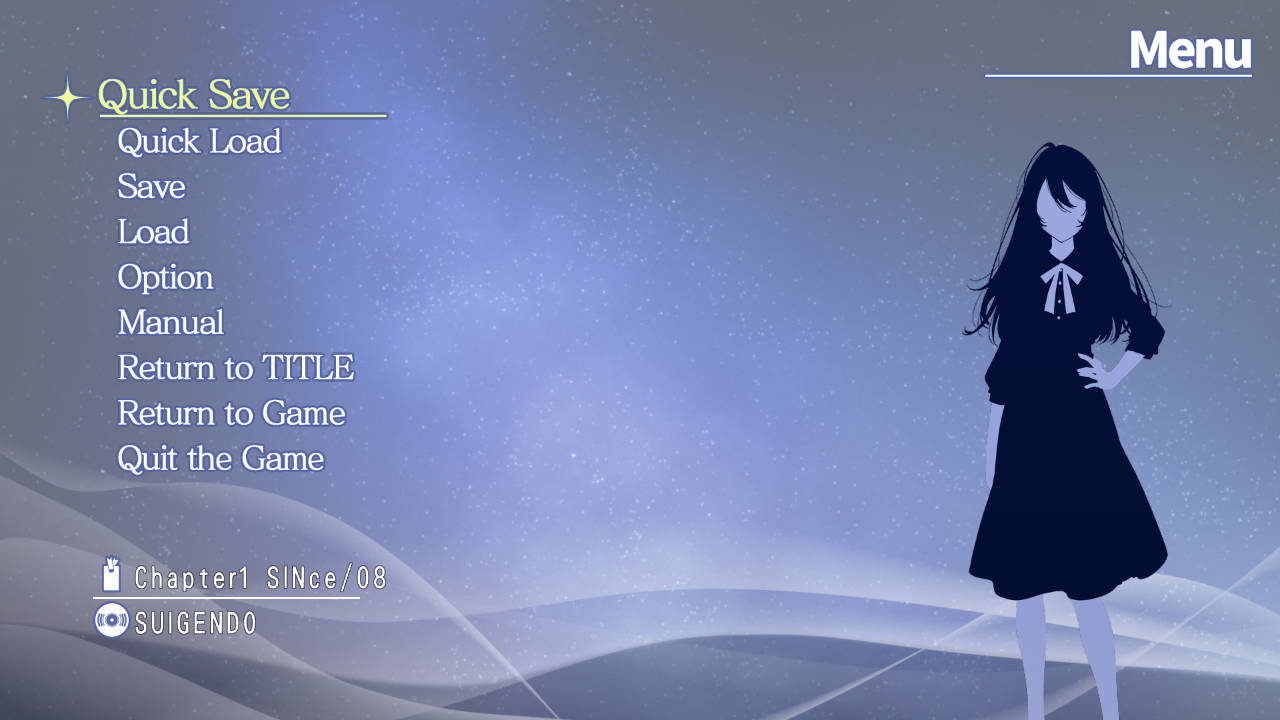
The game’s UI, meanwhile, is simplistic, slick, and beautiful. The system menu charms with silhouettes of the characters against a starry sky backdrop. The story textbox is divine: once again, a deep indigo sky of stars, a motif I’ll admit I’m weak to. Opening and closing the menu mid-game will also result in satisfying clicks and clacks. It’s not the most showy interface, but it’s attractive enough to satisfy, and it feels nice enough to navigate.
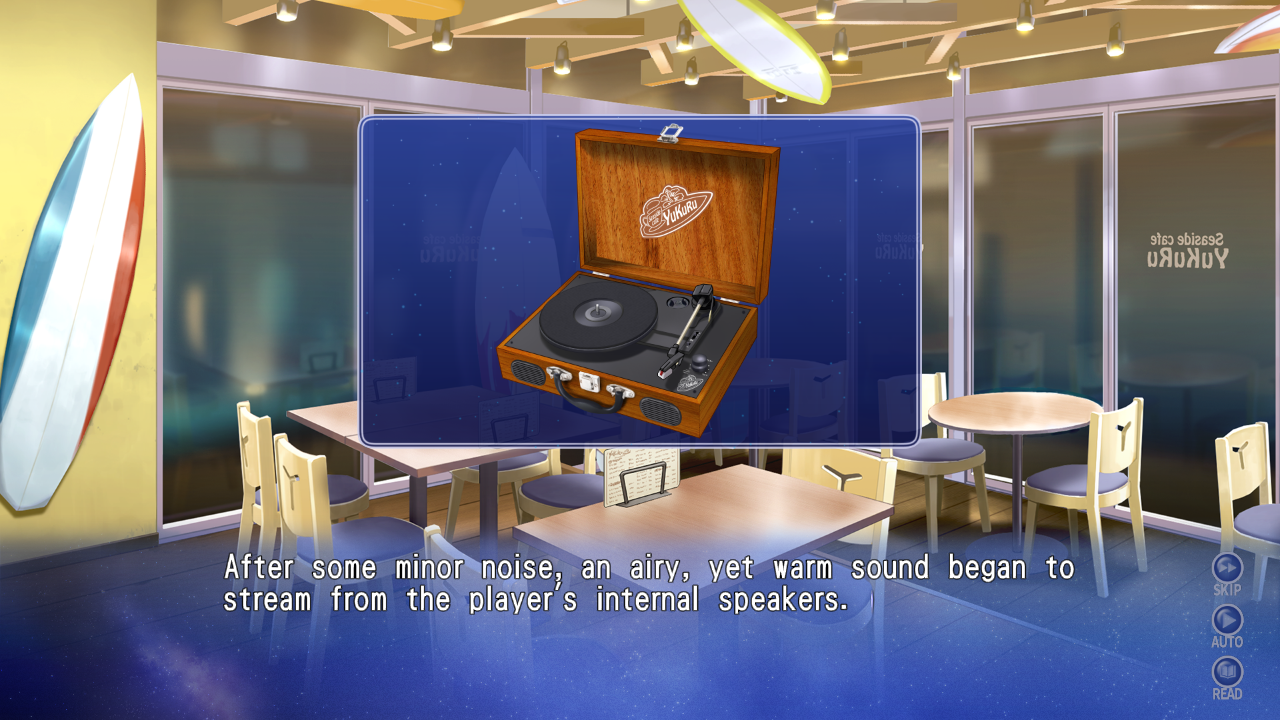
I wish I could leave it at that, but unfortunately, I did have one big problem with the game’s presentation: its English font. At the risk of sounding like a pedant, I believe the presentation of text in a visual novel is critical to the experience. If you’re going to spend 95% of your time looking at the text, by all rights, it should be pleasing to the eye.
But compared to alternative MAGES. localizations like Genso Manège or B-PROJECT RYUSEI*FANTASIA, SINce Memories’s font misses the mark. It’s narrow and dull, not feeling particularly like a readerly font and feeling more like an “it gets the job done” choice. In some cases, letters on a top line may even touch letters on a lower line due to poor line spacing.
It goes without saying that the font is a poor match for SINce Memories’s otherwise stellar visuals, but…you’ll probably get used to it, at least?

On another note, players with an interest in reading in Japanese, Traditional Chinese, or Simplified Chinese will be happy to know that SINce Memories’s new release supports these languages as well. They can be selected at any time from the main menu.
Translation Troubles
Although I enjoyed SINce Memories’s story, its translation unfortunately leaves something to be desired.
Generally, the game’s script is enjoyable to read. You are taken through a narrative that, on the whole, feels coherently told in English. Clever solutions to Japanese nuances and puns are used where needed, and they can be quite fun—“lovesessed” comes to mind. Finally and most importantly, each character’s dialogue feels distinct and true to who they are. The team was clearly pretty confident in what they were conveying, and unlike a weaker translation like Chaos;Head NoAH’s, SINce Memories was fun to read and didn’t feel like a hassle to complete.
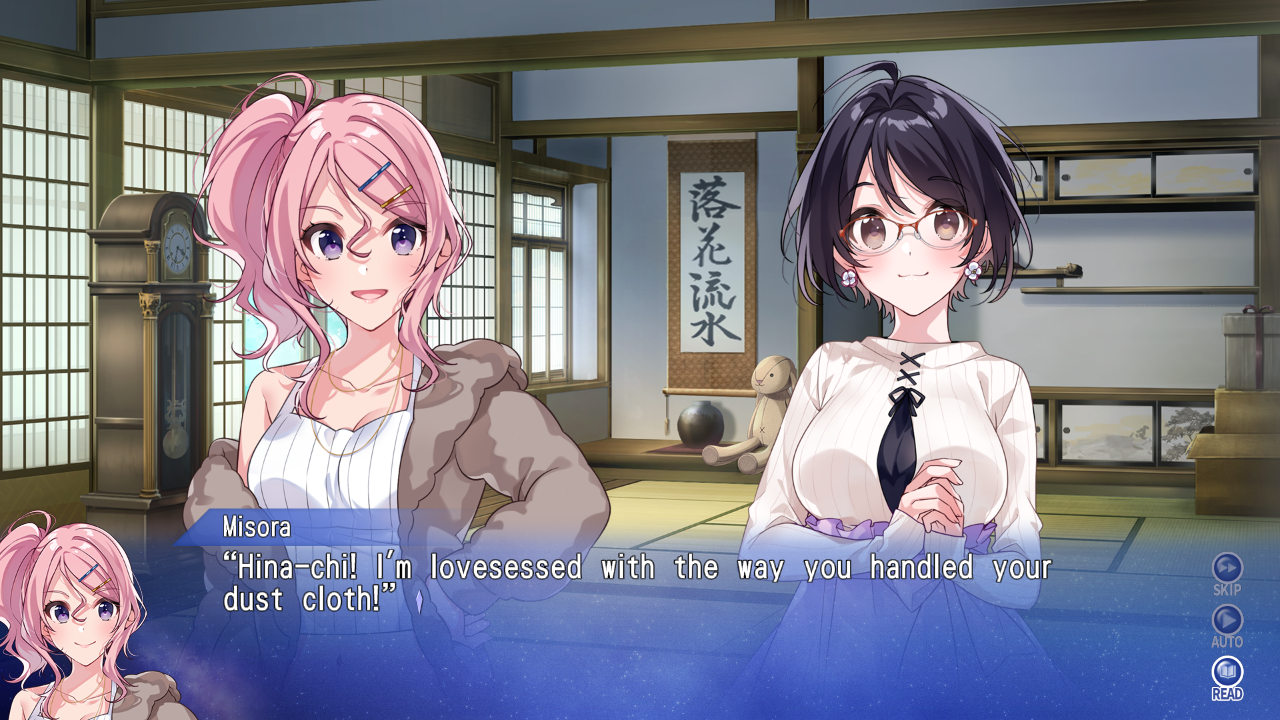
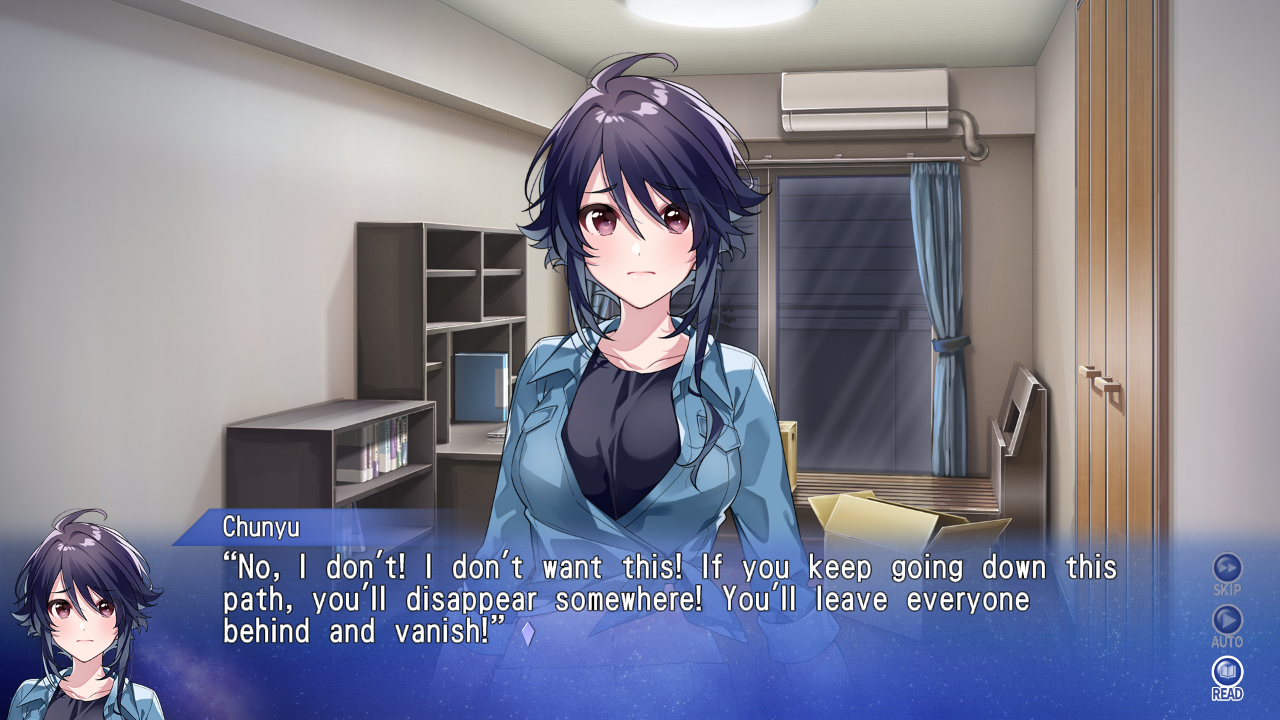
But on the other hand, I did unfortunately come across a range of translation mistakes during my read. Subjects and objects are sometimes confused in the script, meaning the reader will be left thinking a character did something that they didn’t do, or else, was actually done to them. In other cases, something that is said to have not happened is translated as having happened. There are also occasional goofs where a character might talk about someone as though they’re somewhere else—when they’re actually right in front of them.
In some cases, a word or phrase may be misinterpreted for another: for example, a character who’s being held back by the arm saying “はなして” (hanashite), translated as “tell me”—where the more intuitive translation would have been, “let me go.” In a more egregious example, a one-off elderly woman character, labeled “Mrs.” by name tag, is consistently referred to as a man by the script.
Perhaps most troublesome to the overall experience, though, is the imperfect use of past perfect tense throughout the game, which can make it difficult to tell whether a line of narration refers to something that happened in the past or something that is happening in the present.


This is all underscored by an obvious and much greater typo problem. The sheer number of misspelled words, missing letters, and missing words throughout the game is unacceptable and immediately apparent even to a casual reader. This manifests in funny but tragic mistakes like, “my old man spud around on his heel” or “we decided to have a smell celebration on the final day.” To its credit, the script does have better stretches where the typos are less frequent. But this is more of a small consolation than it is a positive.
I must stress that I quite enjoyed my time with SINce Memories despite its apparent translation problems, and I harbor no ill will toward the team and their efforts. I do feel this shouldn’t necessarily put off anyone who has a strong interest in playing the game. But I will admit I’m disappointed the Memories Off series’s debut in the West is in poorer shape than it ought to be language-wise. This release was clearly in need of much stronger quality control at minimum, and certainly, it could have used more time for the translation side to do the best possible job—because they were definitely on the right track. I am hopeful the English publisher will take these criticisms to heart and, if they choose to localize more Memories Off titles, aim to do a better job next time.
The Deck Experience
Steam Deck owners will be happy to hear that SINce Memories runs flawlessly on the platform. A premade controller config is provided through Steam, which you can also adjust to your liking.
My one gripe is that Steam Cloud support is not available for some reason, meaning if you’re playing on more than one device (e.g., Deck and PC), you’re going to have to manually transfer your saves between the devices when you want to switch over.
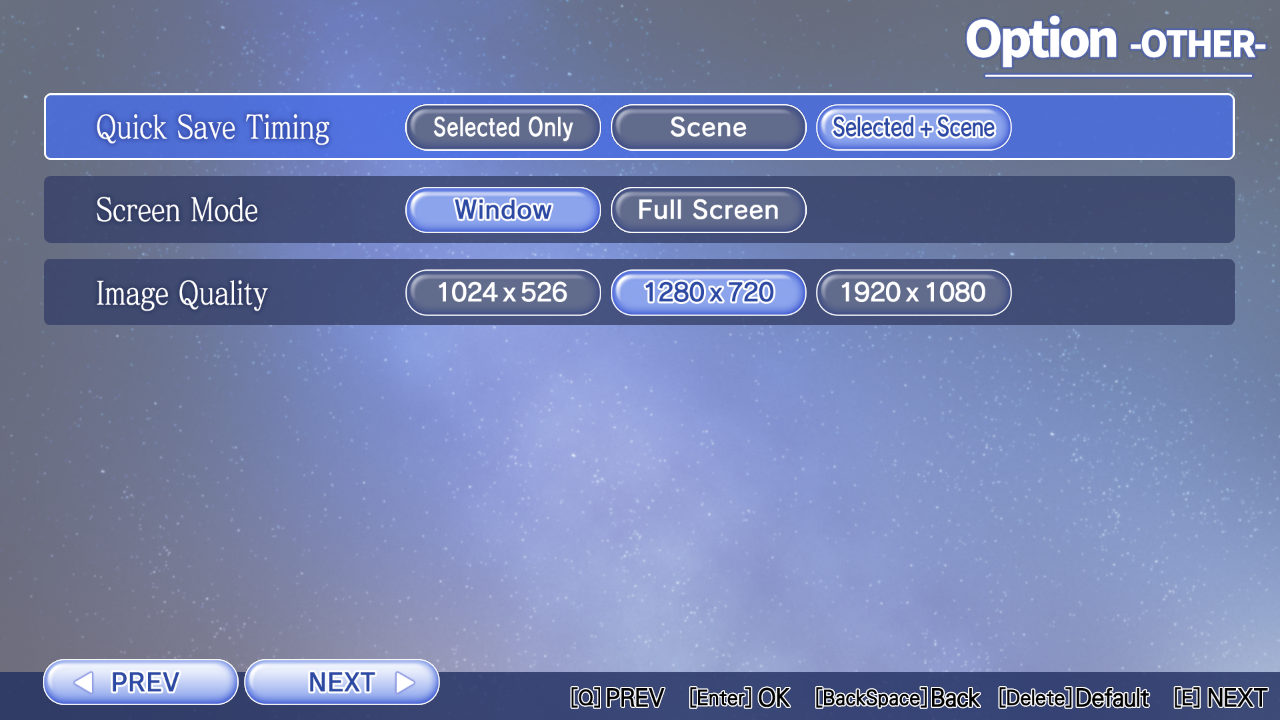
Deck players should be sure to set the game’s resolution to 1280×720 during their first play session to ensure the game doesn’t look blurry. This can be done in the in-game options menu.
In Conclusion
While I’ve been a little hard on SINce Memories’s English release, I do it out of love—because I feel it’s a good game held back by a range of small problems.
I greatly enjoyed my time with SINceMemo, and I found it measured up to my expectations for the series as a whole. If nothing else, it left me excited to read MAGES.’ upcoming new entry, Memories Off Sousou; penned by Naotaka Hayashi of SciADV fame, it’s expected to release next year in Japan. I remain hopeful that if MAGES. and PQube choose to pursue more English Memories Off releases in the future, they’ll aim to deliver a much more polished product next time around.
But in the meantime, SINce Memories is here for English fans who want to get their start with this iconic series. I’ll be looking forward to seeing what others think of it.
7/10
SINce Memories: Off the Starry Sky is a stellar entry in MAGES.’ Memories Off series, worthy of your attention if you enjoy deeply character-focused stories with a backdrop of mystery and intrigue. A wide range of typos (and a small range of larger translation issues) hold back an otherwise enjoyable English release.
SINce Memories: Off the Starry Sky is available today on Steam, Nintendo Switch, and PlayStation. Interested players may want to check out our SINce Memories game guide here.
A review copy of this game was provided to Kiri Kiri Basara by the publisher for review purposes; this has not affected the opinions expressed herein in any way.



